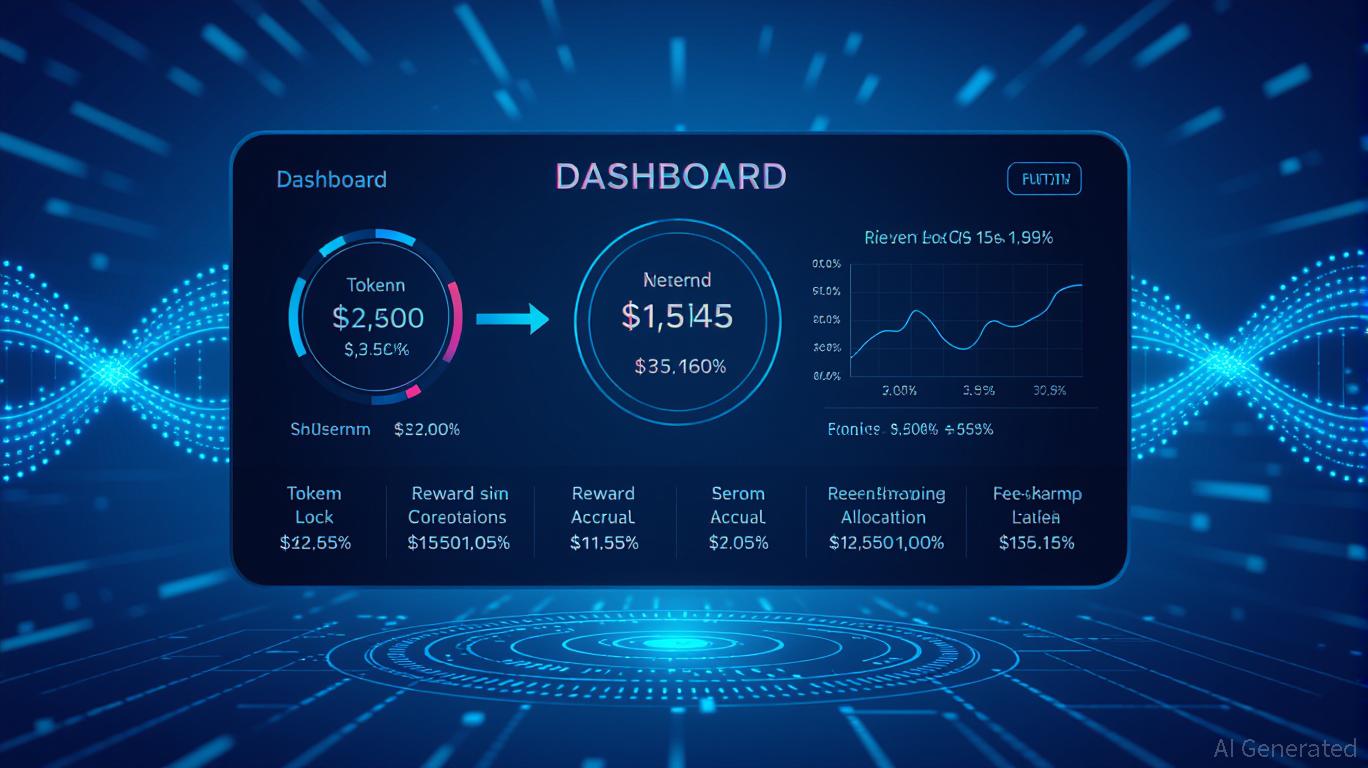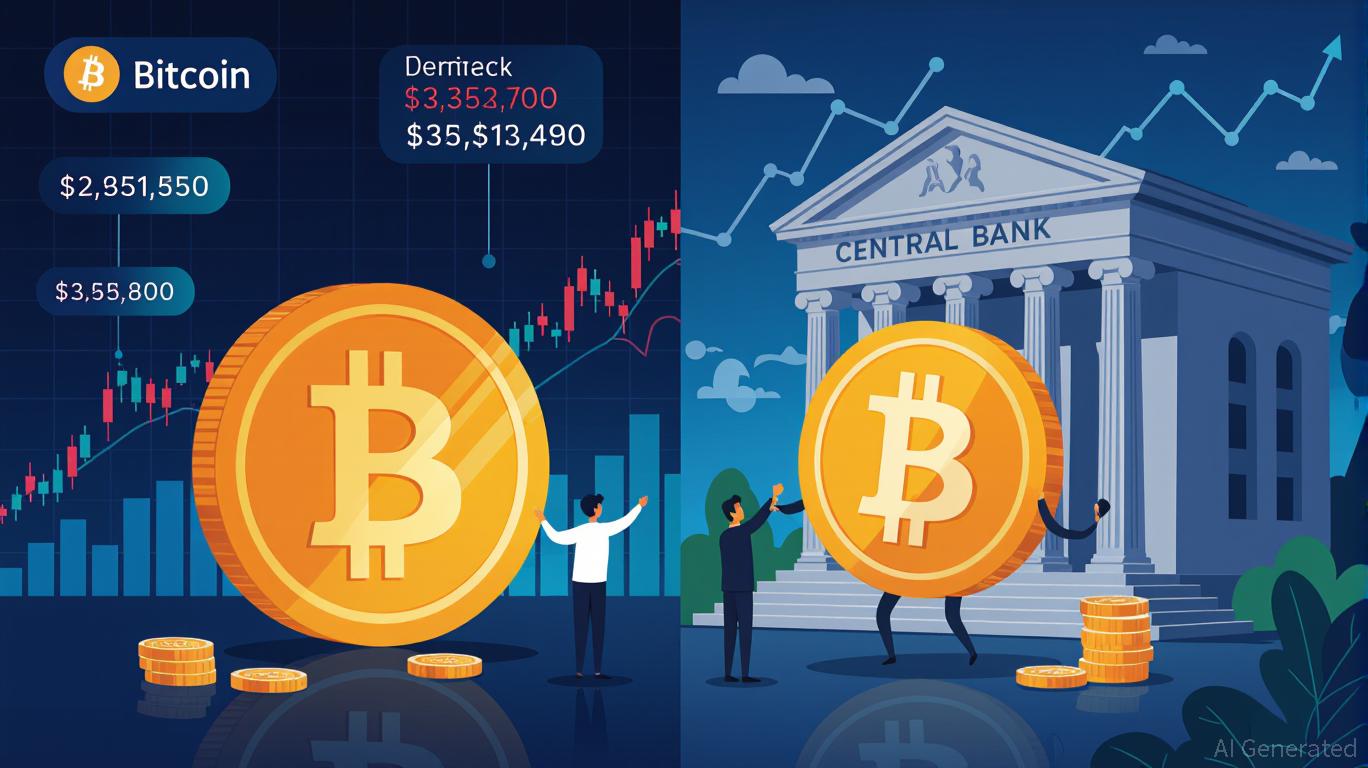Japan Strengthens Cryptocurrency Regulations and Tests Stablecoins to Foster Innovation While Ensuring Investor Confidence
- Japan's FSA and JPX are strengthening crypto regulations to prevent risks from hoarding and insecure management, balancing innovation with investor protection. - The FSA's proposed pre-approval system for crypto providers aims to address vulnerabilities exposed by the $312M DMM Bitcoin hack linked to Tokyo firm Ginco. - JPX plans to restrict listed companies from accumulating digital assets, following global trends as Japan hosts 14 listed Bitcoin buyers—the most in Asia. - Parallel stablecoin pilots wit
Japan’s Financial Services Agency (FSA) and the Japan Exchange Group (JPX) are working together to tackle the dangers linked to excessive cryptocurrency accumulation and weak management systems, as authorities aim to encourage innovation while safeguarding investors. The FSA is moving forward with a system that requires advance notification from crypto asset management firms, and JPX is considering restrictions on listed companies amassing digital assets to avoid governance and market stability problems, according to a
The FSA’s plan would make it mandatory for businesses providing crypto management solutions to obtain approval in advance, addressing weaknesses revealed by incidents such as the DMM
At the same time, the FSA is running stablecoin trials with leading banks such as Mizuho, MUFG, and SMBC to
Meanwhile, JPX is weighing tighter regulations to curb the expansion of publicly traded digital-asset treasury companies (DATs), which have experienced steep value drops after initial growth, as highlighted in the
These regulatory actions come as stablecoins face increasing scrutiny worldwide. South Korea’s Financial Services Commission (FSC) has advised caution, pointing to risks such as capital outflows and challenges to monetary policy, while also recognizing the importance of keeping pace with developments in the U.S. and Japan, as reported in a
Industry specialists emphasize the need for proactive regulation. An unnamed FSA advisor remarked, “Strengthening pre-approval requirements is vital for protecting user assets and ensuring market stability,” as referenced in the
---
Disclaimer: The content of this article solely reflects the author's opinion and does not represent the platform in any capacity. This article is not intended to serve as a reference for making investment decisions.
You may also like
Supervised Blockchain Banking Connects Traditional Finance and Digital Assets
- Telcoin becomes first U.S. digital asset bank with Nebraska regulatory approval, launching eUSD - the first bank-issued stablecoin backed by U.S. deposits and treasuries. - JPMorgan's JPMD deposit tokens enable instant 24/7 transactions on Base blockchain, offering yield-generating digital claims on actual bank deposits unlike traditional stablecoins. - Thunes' blockchain infrastructure solutions bridge digital-physical finance gaps, supporting $10B market growth by enabling seamless fiat-digital asset c

Bitcoin News Update: Bipartisan Deal Faces Delays Due to Healthcare Disagreements and Trump Tariff Challenges
- U.S. lawmakers near bipartisan deal to end 40-day government shutdown, funding federal operations through January 30 with ACA tax credit votes and Trump's reversed firings. - House Democrats split over healthcare provisions, while Senate faces hurdles in passing funding package due to healthcare disputes and procedural challenges. - Markets react mixed: crypto surges on shutdown resolution optimism but ETFs see outflows, while semiconductors face volatility amid analyst price target adjustments. - Prolon

MMT Token Experiences Rapid Price Increase: Analyzing Blockchain Governance and Factors Driving Market Sentiment
- MMT Token surged 4,000% during its 2025 TGE before a 70% correction, driven by governance innovation and market sentiment shifts. - Momentum Finance's veMMT model locks tokens for governance rights, while buybacks using protocol fees create deflationary pressure. - Institutional backing ($14.5M IDO) and cross-chain partnerships with Wormhole/LiFi boosted MMT's appeal as a liquidity engine for Sui's ecosystem. - Volatility risks persist due to macroeconomic factors, security concerns, and unproven scalabi

Modern Monetary Theory and the Transformation of Cryptocurrency Valuations: Fresh Momentum or a Risky Gamble?
- MMT-driven fiscal expansion by central banks reshapes crypto valuations, with 55% of hedge funds holding digital assets by 2025. - Algorithmic stablecoins like USDsd expose governance flaws during monetary expansion, while Bitcoin faces inflation-paradox challenges. - CBDCs emerge as government-backed alternatives, prioritizing stability over innovation amid regulatory scrutiny of decentralized models. - MMT's dual impact creates opportunities for institutional adoption but risks centralizing crypto thro
